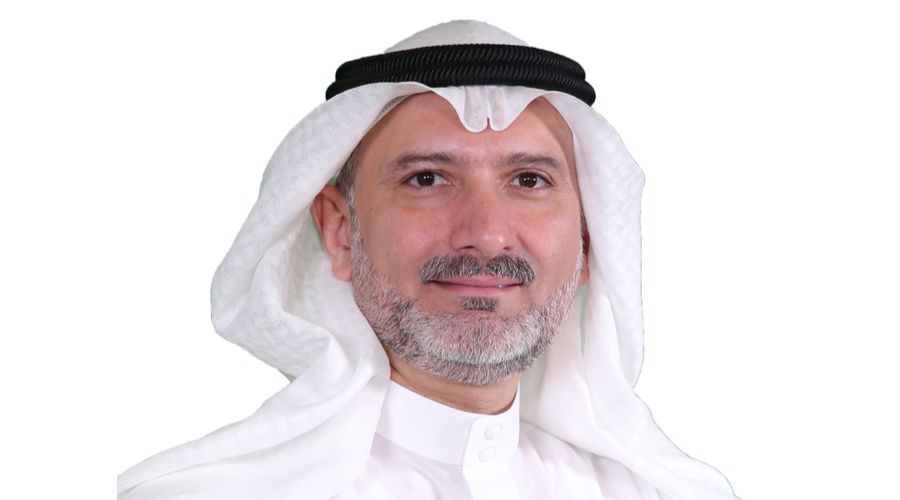Nabeel Koshak: Growing Saudi Arabia’s venture market

Saudi Arabia’s government has been especially proactive in encouraging its entrepreneurship sector, the result of which is a fast-growing startup landscape. As part of its Vision 2030 plan, designed to diversify the kingdom’s economy, several government-led initiatives have helped to increase access to funding, ease founder journey and attract global talent to the country.
One seminal initiative is the Private Sector Stimulus (PSS) initiative, under which Monsha’at launched the Saudi Venture Capital Company (SVC), a fund of funds with SAR 2.8 billion ($750 million) to invest. With its sector-agnostic approach and its focus on addressing investment gaps in the Saudi market, SVC has so far invested $239 million in 17 venture funds and a total of $31 million as co-investment across 63 startups, covering various sectors from logistics and education, to management services and entertainment.
We spoke to Dr Nabeel Koshak, the CEO and board member at SVC about the current Saudi venture ecosystem.
How do you balance being a fund of funds and a VC?
We are developmental/return-driven, so we always want to balance between the two, and our ultimate success is really to have diverse VCs that are addressing different sectors, different stages, and different geographies to make sure that they are really filling the financing gaps for startups in the region. We always want to be private-led fund managers as a government VC, we don't want to overcrowd private investors and angel investors.
What are your expectations for Saudi VCs performance this year?
For the amount of venture-deployed capital we are definitely seeing growth. For Saudi, we are expecting no less than 50 per cent increase on last year’s investor capital. We noticed the 53 per cent increase in terms of asset capital in 2020 versus 2019, and we also noticed the 35 per cent increase in the number of deals. We are seeing that, at least, the total capital invested will increase by a minimum of 50 per cent this year from 2020.
Which sectors are the most active now?
Tech now is involved in all sectors, so all sectors have been disrupted by technology and we are starting to see new sectors coming into contact with technology. For example, healthcare and education becomes healthtech and edtech. There’s also energy tech and agritech, these are emerging sectors.
Fintech is definitely evolving and I believe more funding will be required, that’s why we are now backing sectorial-focused funds. We backed two funds, one of them on fintech and one focusing on healthtech.
Healthtech is becoming more appealing, too, and challenging because of Covid-19, and that’s a global trend. So, we are seeing more healthcare startups evolving.
Saudi Arabia is now in the top three most funded startup markets alongside Egypt and the UAE, what has been pushing this growth?
The UAE and Egypt started addressing this sector and focusing on startups earlier, though we are seeing this progression happening here specifically in the last few years, mainly because of Vision 2030, and there are many initiatives evolving since then, including the two fund of funds, SVC and Jada.
In terms of regulations too, the last two to three years actually witnessed an aggressive update. We have the Sandbox and the Capital Market Authority (CMA), as well as the Central Bank and the Ministry of Investment leading aggressive updates on regulations to ease and accelerate startups.
These are the pillars of the changes happening in Saudi in the last few years. Yes, we came in late but it is never too late, so we try to catch up.
Do you see the pressure of catching up with the Saudi Vision 2030 reflected in the Saudi VC landscape?
What ‘s interesting, is that we [have] achieved most of the objectives of Vision 2030 so far, like the enhancement of the quality of life and the diversification of the economy. Most startups are addressing these goals and they’re helping achieve the Vision. We didn't imagine fintech would emerge in this rapid pace in Saudi, or healthcare or transportation logistics, and they’re playing a crucial role, being backed by VCs, in this achievement.
There are definitely challenges, as always. But we are actually seeing how innovative entrepreneurs are by being resilient and providing creative solutions. The nature of these imaginary, evolving, business models is to be resilient to challenges and changes.
Are there certain advantages that Saudi VCs offer entrepreneurs in comparison to other firms in the region?
I think the nature of countries in the region, the size of these countries is not addressable for startups to be high-growth companies. So, most of the funds I’m seeing are not country-focused, they’re regional-focused. Now, they might have a higher allocation for specific countries, but what’s happening is that the market size for these individual countries is not eligible enough for high-growth, rapidly growing companies .
The funds that have significant contributions to the Saudi market and help startups scale and grow within Saudi Arabia will definitely present a gateway for scaling into the GCC, given the size and purchasing power of Saudi.
Is there enough transparency among VCs and entrepreneurs?
Entrepreneurs in the region now have an interesting maturity in terms of how they do their due diligence in assessing investors and VCs, and that’s healthy for all of the ecosystem. As a nascent market, to have more mature entrepreneurs that understand different fund managers and their investment thesis, which raises the maturity level in VCs themselves, that’s very crucial and relevant in the ecosystem.


